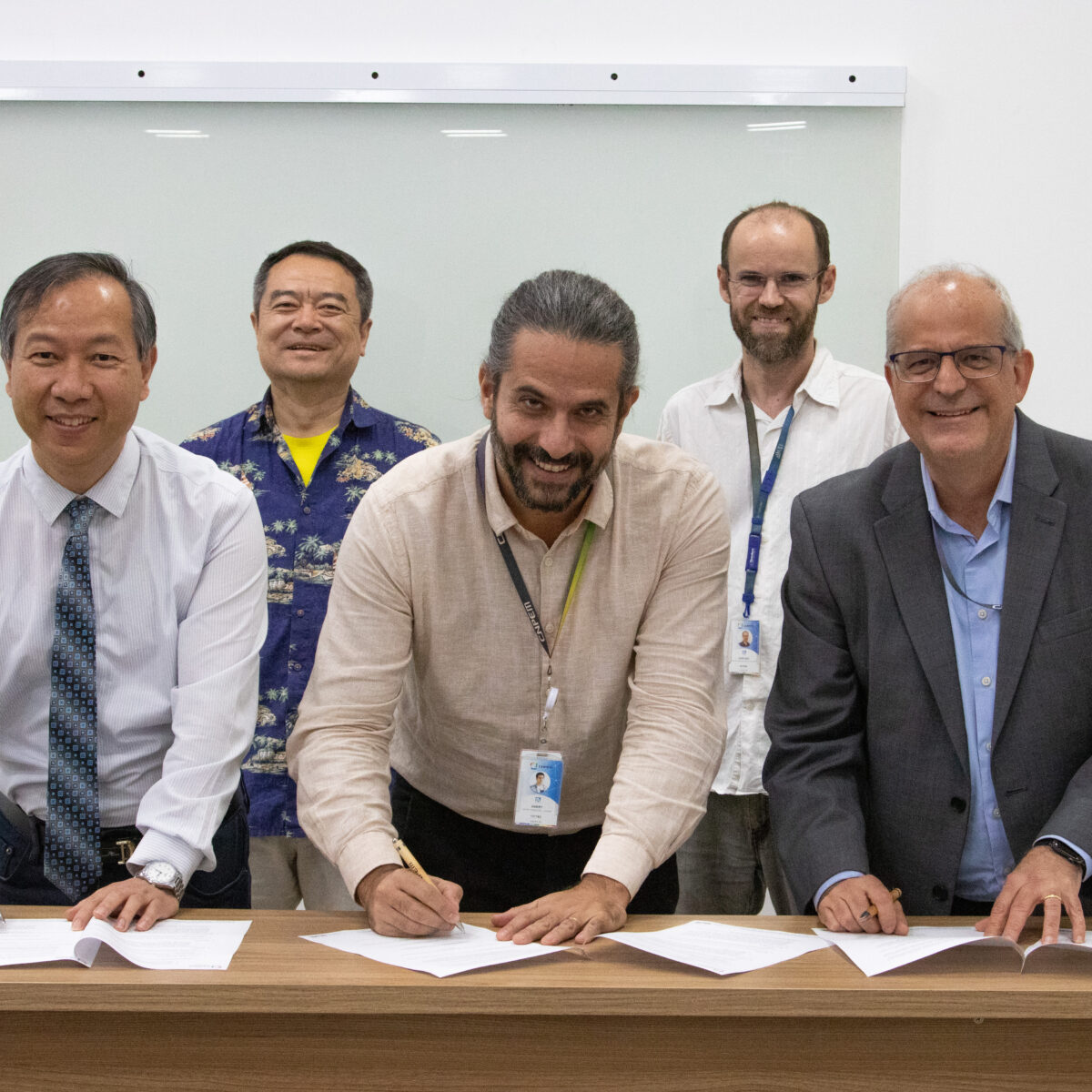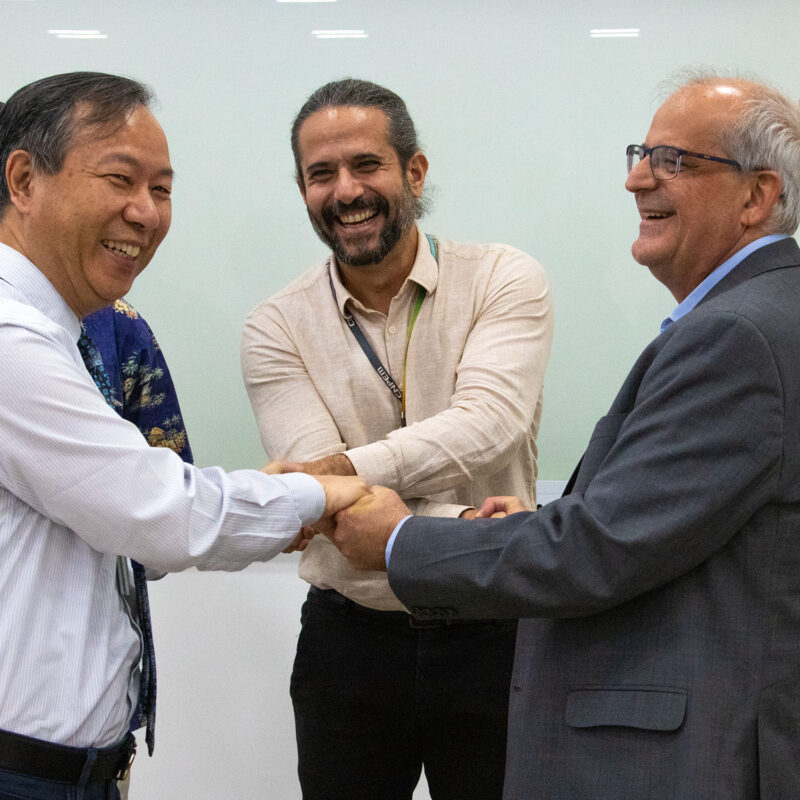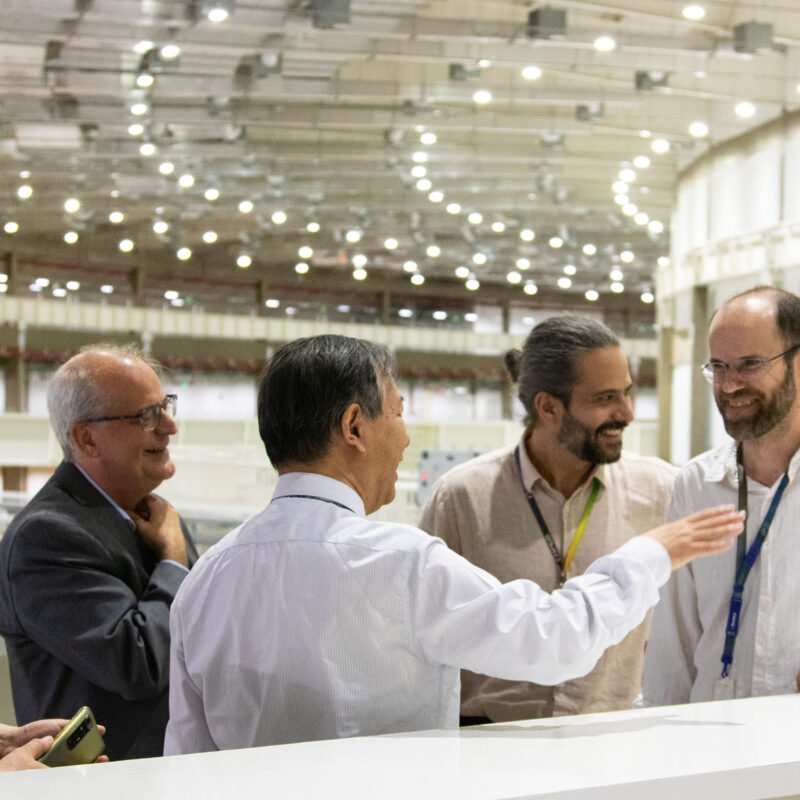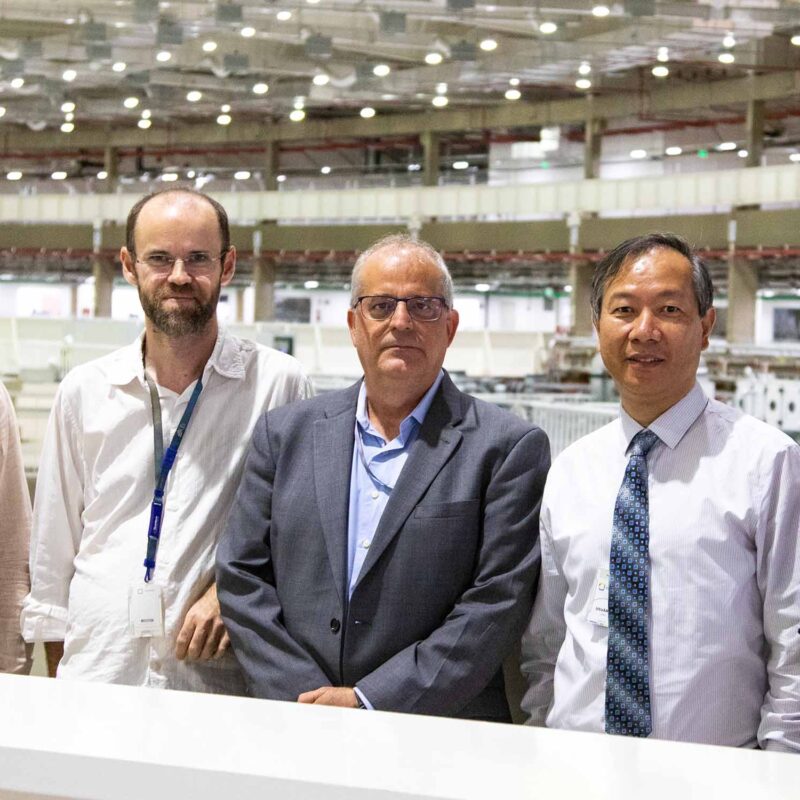
Left to right: Wenge Yang, HPSTAR Director; Arthur Haozhe Liu, HPSTAR Chair of Visiting Scholar Committee and International Office; Harry Westfahl Jr., LNLS Director; Narcizo Souza, Head of the Condensed Matter and Materials Science Division; Antonio José Roque da Silva, CNPEM Director General
Representatives from respected Chinese research institution signed the agreement at the CNPEM campus
The Brazilian Center for Research in Energy and Materials (CNPEM) and the Center for High Pressure Science & Technology Advanced Research (HPSTAR) have signed a memorandum of understanding to promote scientific cooperation between Brazil and China.
This ten-year agreement establishes a collaboration focused on scientific research on high pressure and technological development involving research and administrative staff exchanges, joint projects, and organization of academic events.
The document signed by CNPEM Director General Antonio José Roque da Silva, Brazilian Synchrotron Light National Laboratory (LNLS) Director Harry Westfahl Jr., and HPSTAR Director Wenge Yang recognizes the importance of the two institutions in their respective areas. It is intended to foster an environment of academic and scientific exchange.
As Harry Westfahl Jr. States, “Sirius is attracting top-level researchers from all over the world. Every time researchers from renowned centers like HPSTAR come here to conduct their experiments, the experience gained from the types of measurements they perform and the challenges they pose for us significantly elevate the level of our experiments. All researchers with extensive experience in science with synchrotron light who come to carry out measurements at Sirius contribute to this progress. Our goal is not just to create the best machines but also to conduct the best science in the world.”.
The signing of the memorandum is expected to lead to meetings, seminars, symposia, and other activities to facilitate the exchange of knowledge and findings among researchers. This agreement will also make it possible to pursue financial support from public and private sources to accelerate the growth of collaborations between CNPEM and HPSTAR, in turn strengthening ties between the Chinese and Brazilian scientific communities.
“High-pressure science is advancing almost every day. It greatly depends on technology, especially new synchrotron technologies. There are only a few fourth-generation synchrotron light sources in the world, and Brazil has one of the most advanced, which allowed us to make great strides in high-pressure research,” notes Wenge Yang.




Engineer and physicist Ricardo Rodrigues was awarded the title of CNPQ Researcher Emeritus at the Almirante Álvaro Alberto Award for Science and Technology
Registrations and abstract submission are open until April 30, 2024.